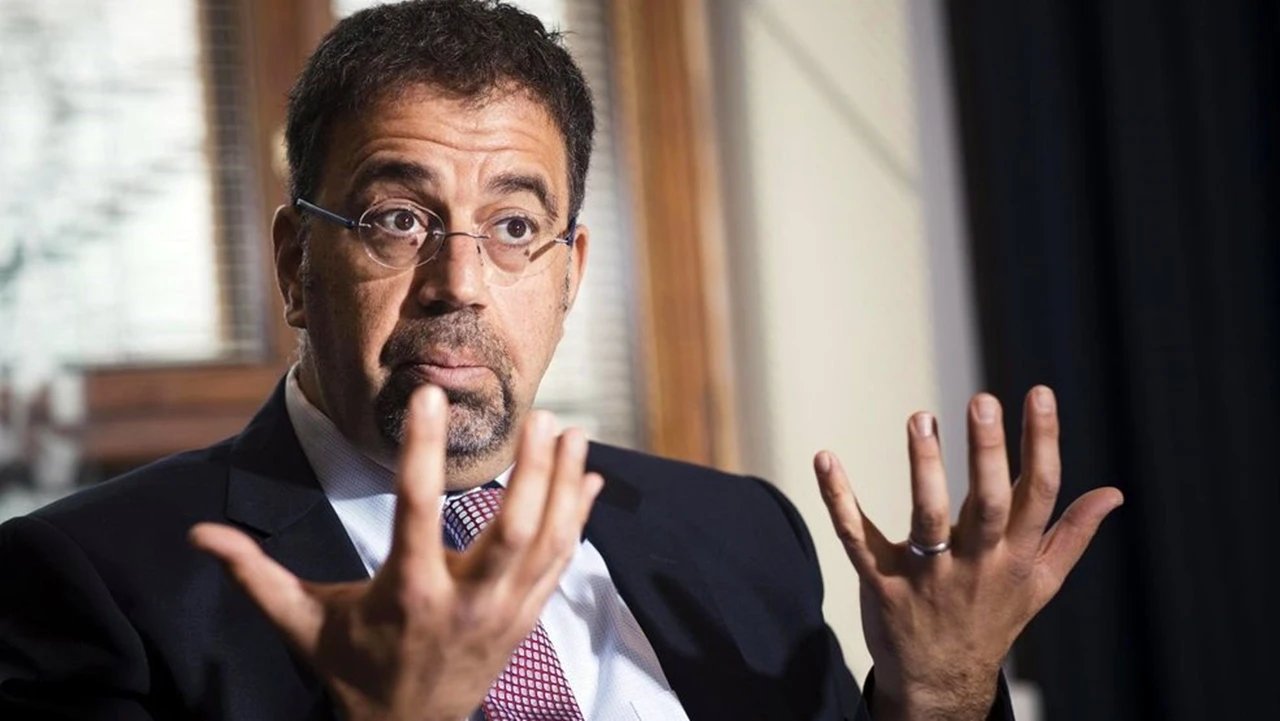Nobel laureate Acemoglu sets date for peak global population
 MIT economist Daron Acemoglu urges Türkiye to accelerate AI integration, July 5, 2024. (Photo obtained via Newsroom)
MIT economist Daron Acemoglu urges Türkiye to accelerate AI integration, July 5, 2024. (Photo obtained via Newsroom)
Economist and Nobel Prize recipient Daron Acemoglu has issued warnings on pressing global issues, including growing wage inequality in the United States and the anticipated peak of the world’s population.
At his first public appearance in Istanbul since winning the Nobel Prize, Acemoglu addressed the Brand Week Summit, discussing critical matters such as rising economic disparities, the impending peak in global population, the impact of artificial intelligence on the workforce, and the economic consequences of climate change.
Despite productivity and economic growth in the United States, Acemoglu noted a concerning trend: real wages for many Americans are declining.
“There has never been a period where nearly half of the population saw no benefit from growth,” he remarked, attributing wage inequality to factors like low minimum wages, weakened unions, and broader political influences. Acemoglu added that these trends extend beyond the U.S., affecting numerous developing nations.
‘AI holds significant potential to enhance productivity‘
On the topic of automation and inequality, Acemoglu highlighted the transformative potential of artificial intelligence. While AI is mostly used today for automating manual tasks and, increasingly, white-collar jobs, it could be leveraged to boost productivity, he explained.
“Focusing solely on automation could lead to more jobs being replaced than created, displacing skilled workers,” he cautioned. “If, however, AI is developed to complement human abilities, it could greatly increase workforce productivity.” Achieving this balance, he noted, will require a deliberate approach to ensure AI’s development is inclusive.
‘Global population expected to peak by 2050’
Acemoglu also addressed demographic concerns, projecting that the world population will peak around 2050 before gradually declining. This shift, he emphasized, will bring economic and social challenges, particularly for countries with rapidly aging populations, like Türkiye.
Nations such as Germany, Japan, and South Korea have adapted to rapid aging by integrating robotics into their industries. By investing in technology and retraining workers, these countries have sustained their industrial sectors, particularly in automotive manufacturing.
‘Climate change necessitates economic shift‘
Acemoglu stressed the economic implications of climate change, advocating a transition from fossil fuels, like coal and oil, to renewable energy sources. Over the past 15 years, he noted, investments in renewable energy have surged in the U.S., Europe, and China, making wind and solar more cost-effective than coal in many regions.
By steering technological advancements toward sustainable solutions, Acemoglu argued, countries could seize a “significant opportunity” to balance economic growth with environmental responsibility.
‘Innovation accelerates, yet benefits are uneven‘
In closing, Acemoglu noted that innovation has accelerated in fields like electronics, computing, and communications, with U.S. patents more than quadrupling since 1980. Yet, he pointed out that the benefits of this innovation are not always broadly shared.
He called for a balanced approach that aligns technological progress with policies to ensure equitable gains, as the world grapples with interlinked challenges in demographics, inequality and climate.



